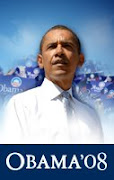Britain will take troops out of Iraq regardless of US, says PM
 I don't have much time to post anything today as I am running for a flight. I will note this though. As Bush fell over himself to cover Gordon Brown in compliments:
I don't have much time to post anything today as I am running for a flight. I will note this though. As Bush fell over himself to cover Gordon Brown in compliments:George Bush had no shortage of epithets for the new partner in his special relationship. Gordon Brown was a humorous Scot, not a dour one, a problem solver with the same sense of morality. He was a principled man who wanted to get something done. He was a man who saw a glass half full, not half empty, and when it came to battling terrorism and providing leadership, "he gets it".
It was notable that Brown did not return them. Indeed, Brown went as far as to label the talks as "full and frank discussions" - diplomatic code for some disagreements.
Brown has also made clear that a British withdrawal from Iraq will be done according to the opinion of British commanders on the ground and that a British withdrawal could take place even if that left the Americans in Iraq and appeared as a split in the coalition.
However, President Bush acknowledged that a British withdrawal could take place while the US remained in Iraq because, he said, decisions would be "results-orientated". He said America could be there for "a long time". He added that America's next moves would be decided after a report in September by General David Petraeus, the US commander in Iraq, on the "surge" of US troops in the Baghdad region.There was also a notable difference in the way the pair of them described terrorism:
By calling terrorism "a crime" Brown is appealing to the sections of the Labour party - people like myself - who do not believe that the war on terror is actually a war. Terrorists are criminals who should be dealt with as criminals, one exalts them beyond anything they deserve when one declares "war" on them.The two leaders also had to paper over their different approaches on how to respond to terrorism. While maintaining a united front, Mr Brown told President Bush that the fight could not be won by military might alone, and called for a "Cold War-style" propaganda battle in the Muslim world.
Deliberately avoiding the phrase "war on terror," Mr Brown said: "Terrorism is not a cause but a crime - a crime against humanity." In contrast, the President spoke of "this war against extremists and radicals". But he said of Mr Brown: "There is no doubt in my mind that he understands the stakes in the struggle."
Of course, Brown is playing all this down as it is important that Britain's relationship with the US is preserved, but the signals are all there that the relationship between Brown and Bush will not be the cosy affair that Bush enjoyed with Blair.
In Guardian comments it was reported like this:
As presidential compliments rained down on Mr Brown's head, it began to emerge that the prime minister had got what he wanted. His ministerial frontrunners had established a useful sense of ambiguity, the possibility that a relationship that had been joined at the hip might eventually be severed. Mr Brown then arrives and secures a working relationship, free of sycophancy. The White House characterised the hints of a tougher British partner as "white noise", saying it was not what British ministers said that mattered, but what they did. But the overall effect of this carefully calibrated operation has been to pull the clothes over to Britain's side of the bed.So, however Brown has been received in Washington, his visit has greatly pleased his own party for the subtle changes he has made to the relationship.
Most Americans will have no idea of how embarrassing Blair's sycophancy was for us to watch. The "Yo Blair!" moment being one of almost national humiliation.
So it's very nice to see a British Prime Minister go to Washington and not act as if he's the commander of the American aircraft carrier, known as the UK, reporting for duty.
Click title for full article.






No comments:
Post a Comment